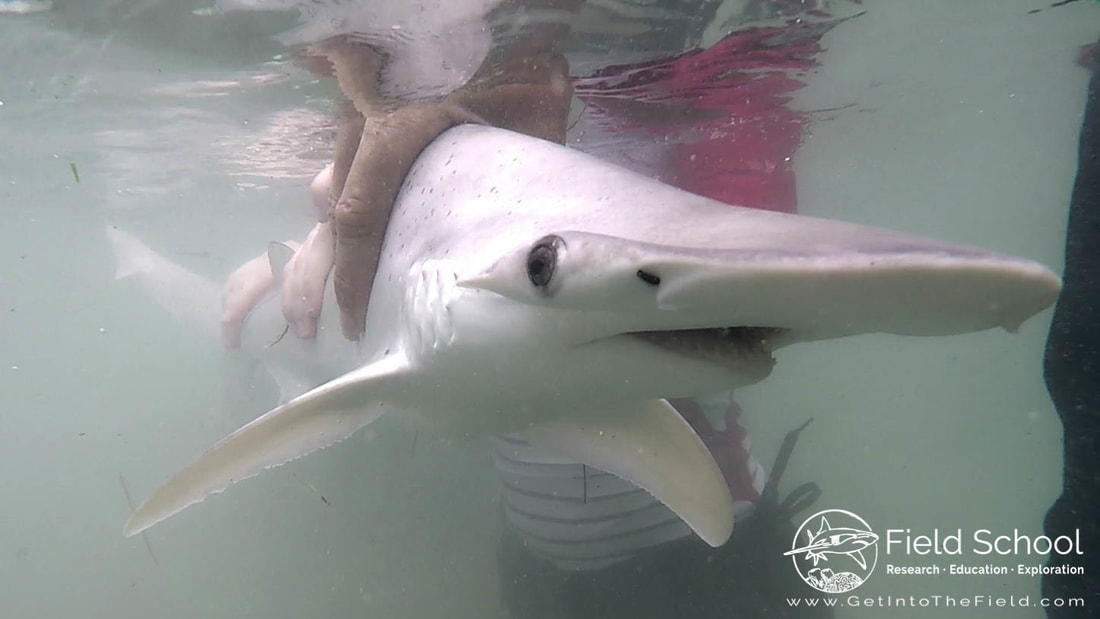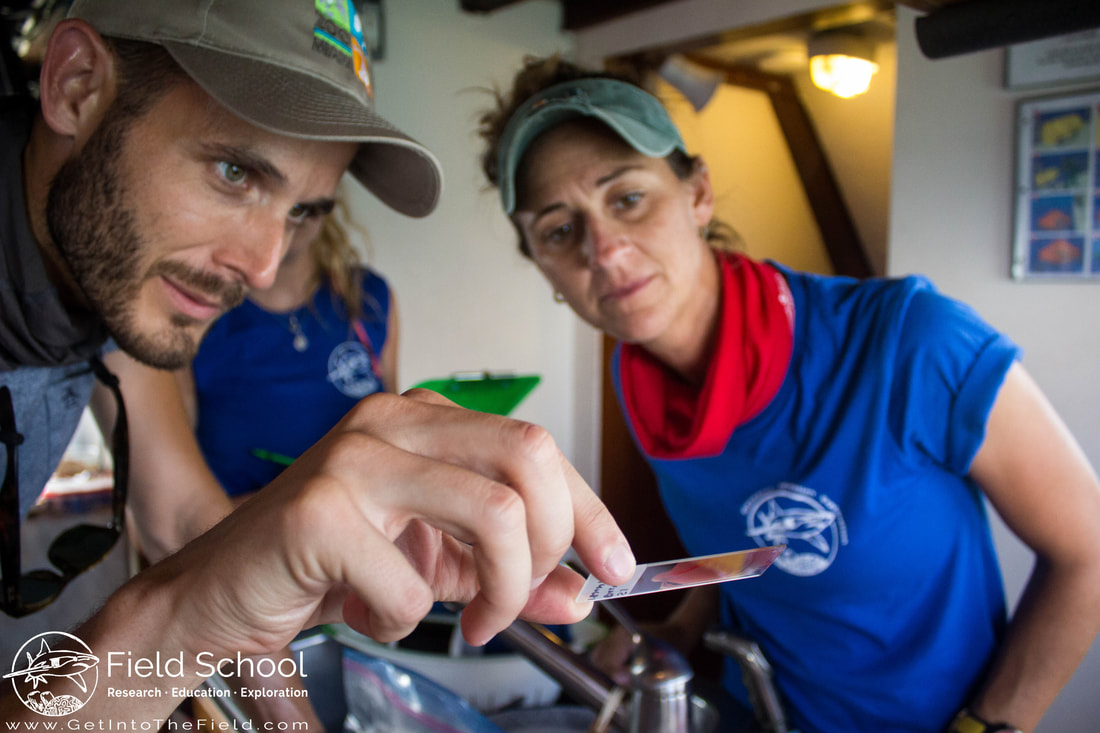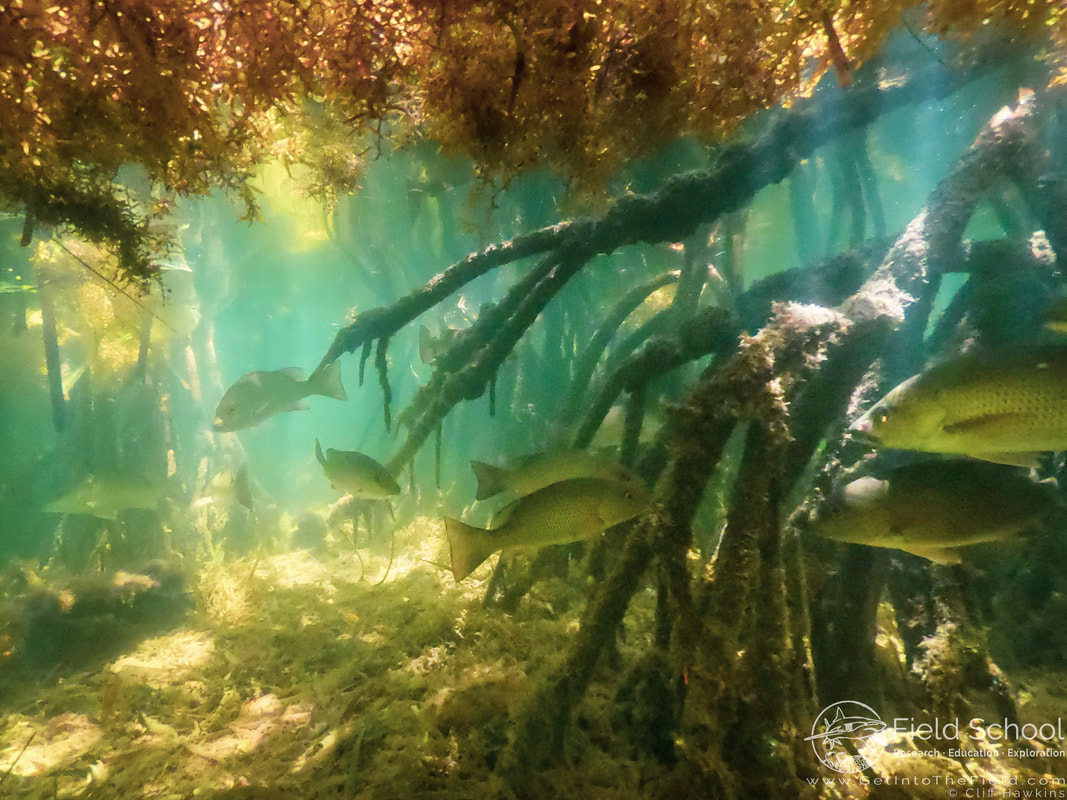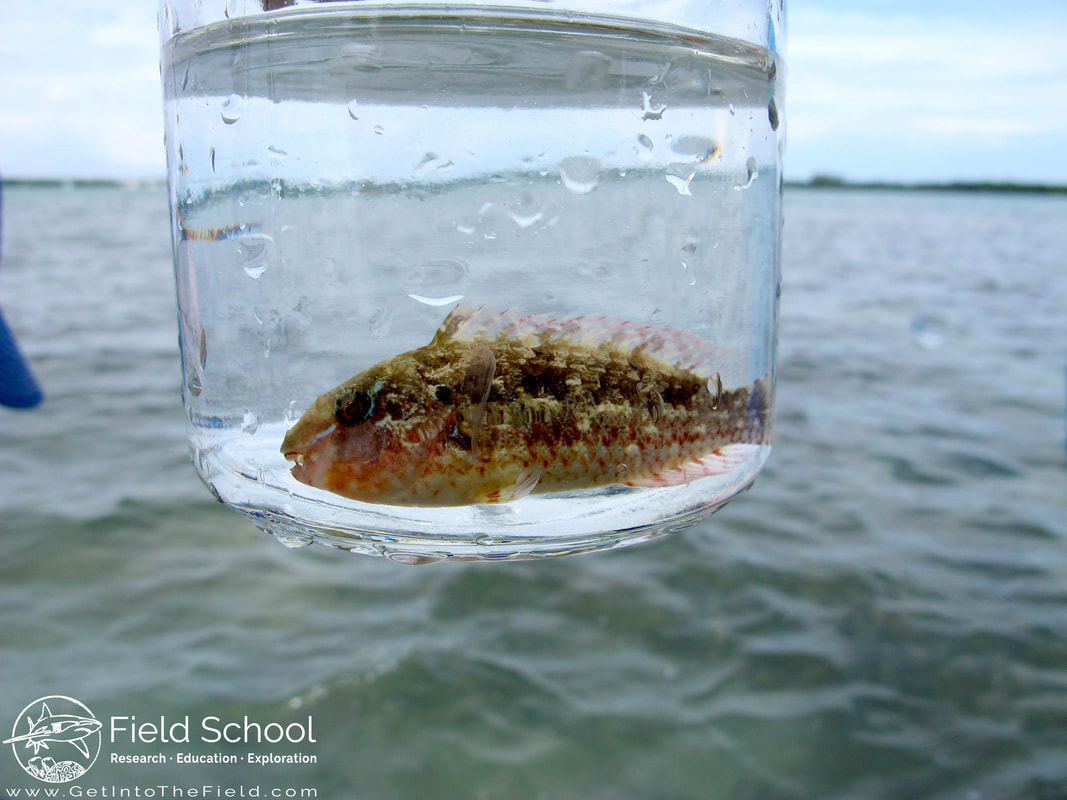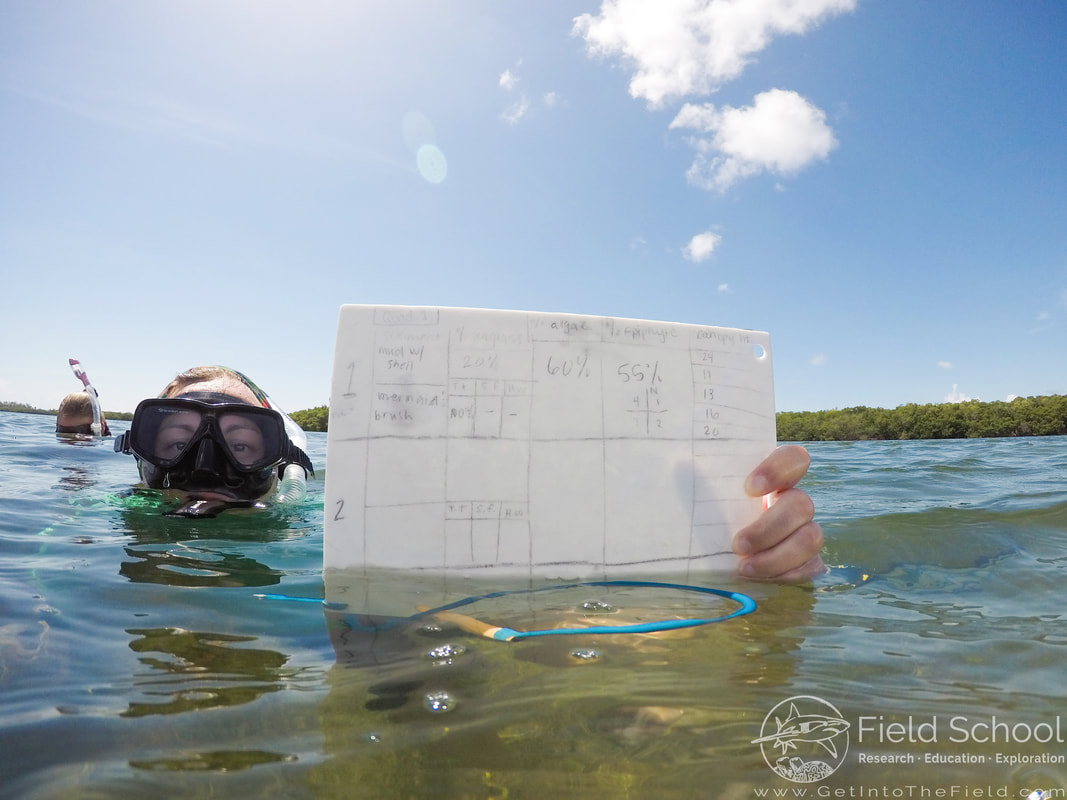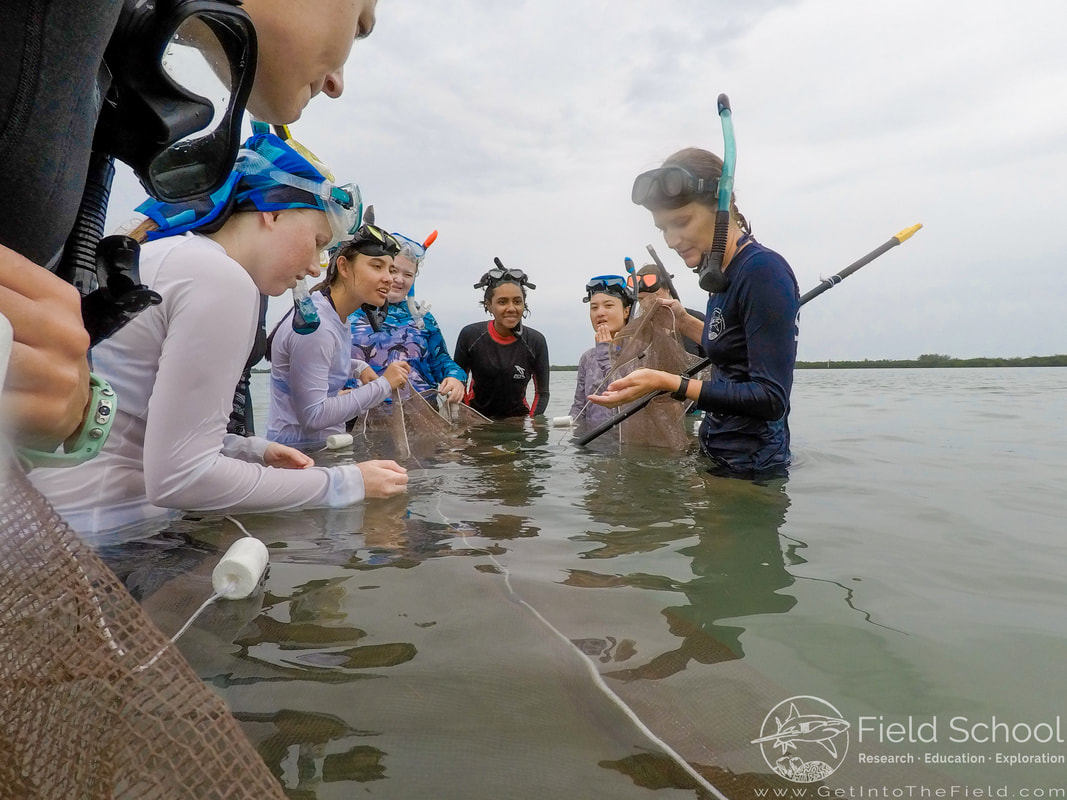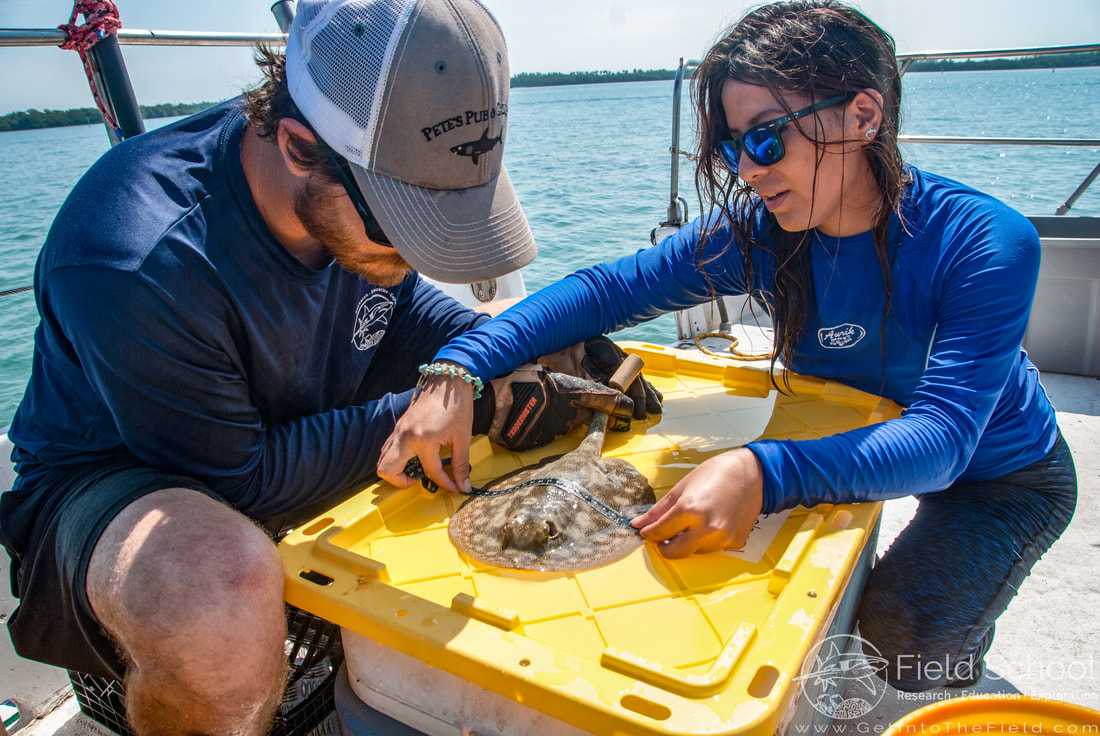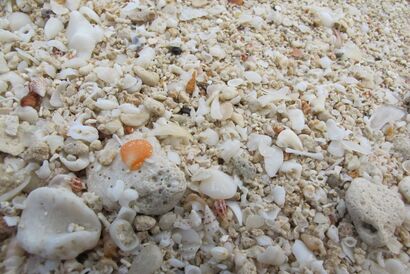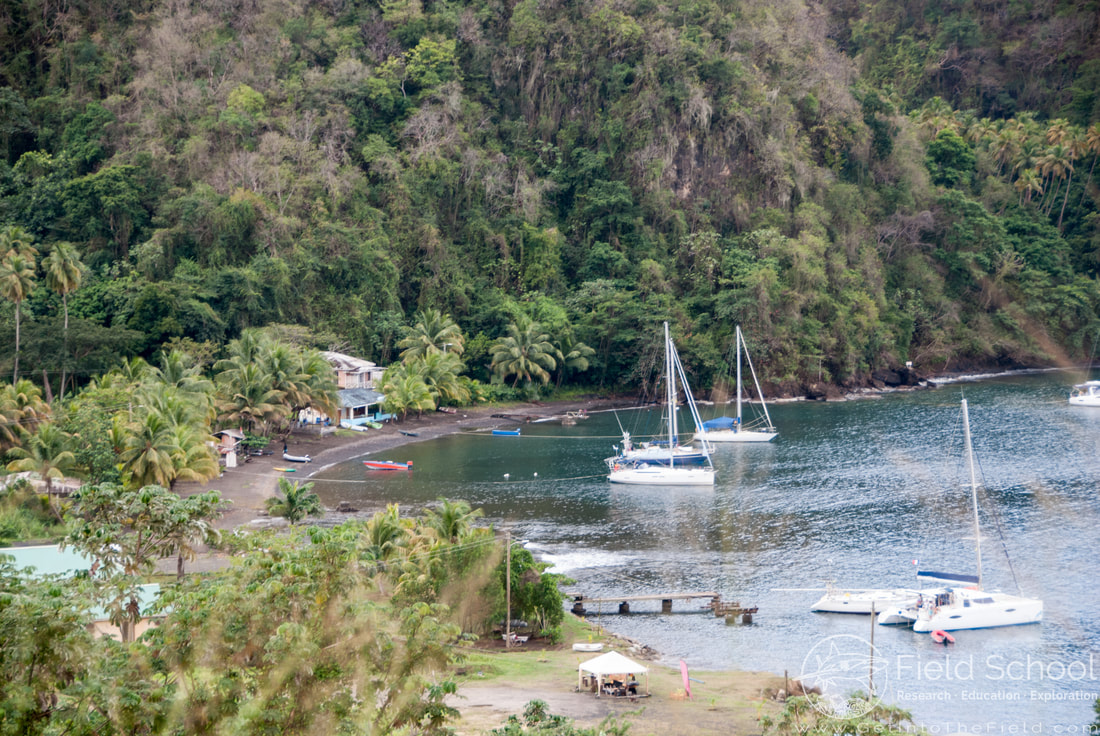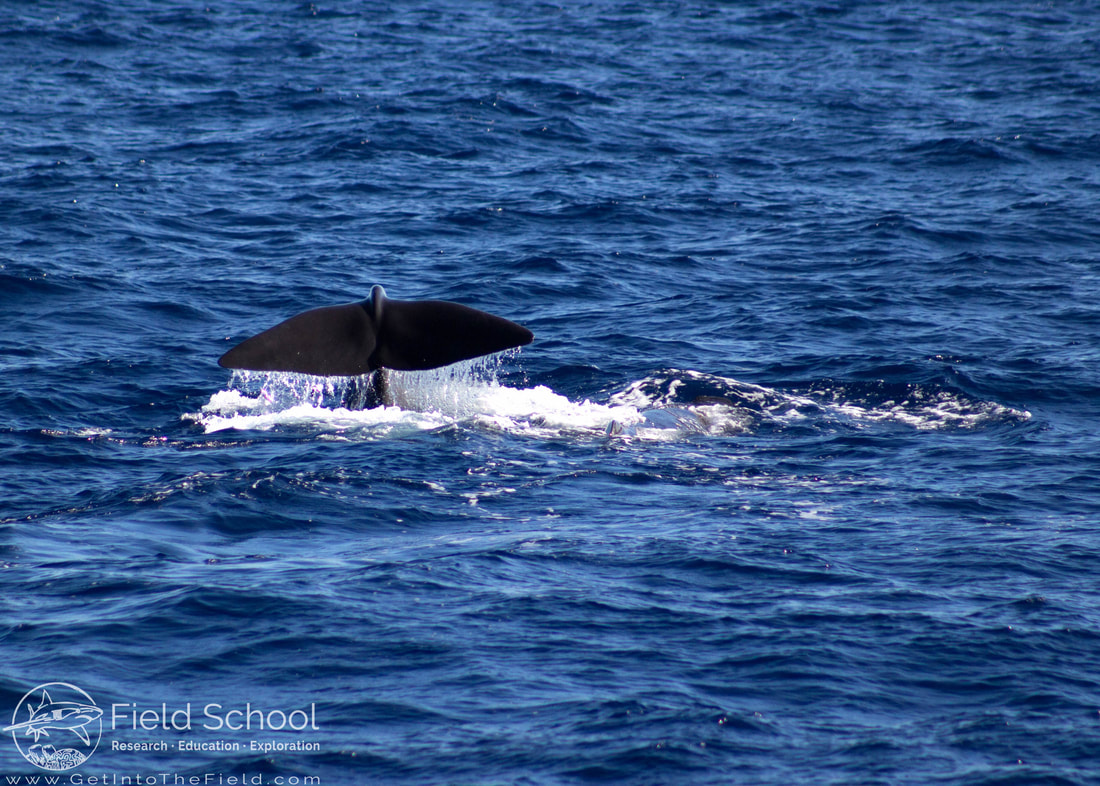Ongoing research and collaborations
Field School is committed to science-based conservation and public engagement with research. All of our expeditions contribute to ongoing marine science research, and students participate actively in the collection of scientific data.
Field School Projects
Shark Population Status and Trophic Interactions
|
Using diverse study techniques, from deploying BRUV (Baited Remote Underwater Video) arrays, to gillnetting, to longline and drumline fishing, we're working to gather data on shark populations in South Florida. We're interested in everything from how sharks handle the stress of capture to what they're eating and where they live. All of this data can help us improve shark conservation and management.
|
Shark Physiology Research
|
Physiology is the study of the normal biological functions of a living organism. Our physiology research is mostly focused on topics that can be studied using a sample of shark blood—including questions about how sharks respond biologically to the stress of capture (and how that stress can be minimized), baseline information about shark blood clotting, research into reproductive hormones, and parameters that can help us assess general animal health. This data is collected as part of our Intro to Shark Research Course.
|
Join our Intro to Shark Research Skills Course to learn more and participate in this research project!
Mangroves and Trash
Fish Population Studies
|
Using multiple techniques, this project studies the health and habitat use of fish species in South Florida. These communities and how they may change over time in response to human pressures can tell us a lot about the health of marine ecosystems. This study also contributes data to other projects on fish parasites, shark diet, and habitat use.
|
Seagrass Monitoring
|
Seagrass is an incredible and underappreciated ecosystem. While teaching students monitoring skills, we are studying and characterizing seagrass beds around Miami. Florida monitors seagrass beds using aerial surveys, but nothing matches the level of detailed information on-the-ground monitoring can provide about the species that rely on seagrass for survival.
|
Seine netting Biodiversity Survey
|
Research shows that people tend not to recognize that nature isn’t only found in protected areas and national parks, but right outside their own backdoors. This project collects data on the wide variety of species found in seagrass beds off the coast of Miami, and demonstrates that even areas that are highly impacted by humans and development may represent critical habitat for an incredibly diverse array of species.
|
Yellow Stingray Ecology
|
Despite being commonly found off the coast of South Florida, there is little published scientific information on the yellow stingray (Urobatis jamaicensis). This project collects vital data on yellow stingray habitat use, reproduction, and feeding ecology that can help better manage these small, ecologically important batoids.
|
The "What is Sand?" Project
|
This project uses microscopes to look at and categorize sand from the many South Florida beaches that Field School visits. Our students have found that sand is much more complicated than it seems--and can be made up of crushed shells, coral skeletons, remnants of calcerous algae, even bits of plastic! In addition to scientific questions about the origins of our sand, this project is part of an artistic collaboration seeking to capture the beauty of microscopic nature.
|
Saint Vincent and the Grenadines Shark Fisheries Research
|
This research, supported by the Save Our Seas Foundation, studies the scale and practices of the subsistence shark meat fishery in Saint Vincent and the Grenadines to provide baseline data on what sharks are present in Vincentian waters and how many are interacting with the existing fishery. This type of data is crucial for improving conservation of shark populations throughout the southern Caribbean, and relies heavily on collaboration with local fishermen and managers. This project is also collecting data on mercury contamination in shark meat across species and sizes of shark to better understand whether consumption of shark meat may threaten human health.
|
Collaborative projects
Shared Waters Project with the Bahamas Marine Mammal Research Organization
|
Field School is partnered with the Bahamas Marine Mammal Research Organization to support their “Shared Waters” project. As part of our expeditions with BMMRO, we actively track sperm whales using a towed hydrophone, and recover and reset the acoustic arrays that remain in place for months at a time to record data about ship traffic, noise pollution, and whale presence.
|
|
Partner with us! We are always looking for new schools, scientists, and non-profit organizations to partner with. Please contact us here to start a conversation.
Hear from us! Sign up for our newsletter to hear about what is happening at Field School as well as upcoming offers and specials. |

